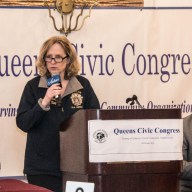By Stephen D. Hans
Too many employees (and former employees) have come to believe that every insensitive act, rude comment or other workplace slight by their boss or co-worker is a violation of the law. Catch phrases and buzz words like “hostile work environment” and “harassment” are often wielded like weapons without a true understanding of their legal meaning or of the exacting standards that the law imposes to establish a claim of harassment.Title VII of the Civil Rights Act of 1964 is the federal law that prohibits employment discrimination (and harassment) on the basis of sex, race, color, national origin and religion. In addressing the standard for actionable harassment, the U.S. Supreme Court has stated that Title VII is not a “general civility code.” In other words, while abusive language, tasteless jokes and rude behavior are unprofessional and bad for business, they do not necessarily constitute actionable harassment.For behavior to rise (or sink, as the case may be) to the level of actionable harassment, the law requires that it be sufficiently severe or pervasive to alter the conditions of the victim's employment and create an abusive working environment. In addition to being subjectively offensive, the work environment must be objectively offensive – one that a reasonable person would find hostile or abusive. Whether the behavior created an environment that is objectively offensive depends upon the totality of the circumstances, including, for example, the severity of the harassing behavior, its frequency, whether it is physically threatening or humiliating and whether it unreasonably interferes with an employee's work performance.A single, extraordinarily severe incident, such as an offensive sexual touching or an assault, may be sufficient to constitute actionable harassment. However, the majority of hostile work environment cases require a showing of a pattern of offensive conduct. An offensive utterance, a stray remark or an isolated incident of abusive behavior regarding sex, race, color, national origin and /or religion typically does not create a hostile work environment.Furthermore, behavior that bears no relation to the protected categories of sex, race, color, national origin and religion, even if highly offensive, does not constitute a Title VII violation. (Keep in mind that such behavior may very well violate other federal, state and/or local laws if it related to categories that are protected under these laws, such as age, disability, veteran status, citizenship status, sexual orientation, genetic predisposition, carrier status, etc.)Title VII was not meant to protect overly sensitive employees, nor to cleanse the workplace of all insensitive, rude and abusive treatment. While it is laudable to strive for something more, the reality is that the workplace is, in many respects, a microcosm of society with many of the same fables and challenges. Just as there is no legislative cure for many of the ills of society, there is no legal redress for every form of unprofessional and, at times, abusive, workplace behavior.That behavior is best addressed by the implementation and consistent application of sound employment policies and practices, not by legal action. These policies would include for example, clear and effective equal employment opportunity policies and policies against discrimination, harassment and retaliation in the workplace.The latter policies must include, at a minimum, a clear explanation of the type of conduct prohibited; assurances that employees who make complaints or provide information related to such complaints will be protected against retaliation; a clearly described complaint process that provides more than one accessible avenue of complaint; assurances that the employer will make efforts to protect the confidentiality of complaints (but without guaranteeing confidentiality); a compliant process that provides for a prompt, thorough and impartial investigation; and assurances that the employer will take immediate and appropriate corrective action if it determines that discrimination, harassment or retaliation has occurred. Such policies must also be accompanied by effective training.Unlike the law, these policies cover more than just actionable harassment, discrimination and retaliation and should even extend beyond harassment based upon legally protected categories to include all kinds of harassing and abusive workplace misconduct. Therefore, while the law does not require a workplace free of all abusive behavior, effective employment policies can go a long way toward that goal. Abusive supervisors and rude co-workers beware: If your unprofessional behavior is not sufficiently sever or pervasive to land you on the wrong end of a legal action, it may still earn you a disciplinary notice or, even worse, a pink slip.Stephen D. Hans is an employment law practitioner for 27 years and co-president of Employment Relations Solutions, Inc., a human resources consulting firm for corporations. He is a member of the Board of Managers at the Queens County Bar Association.



























